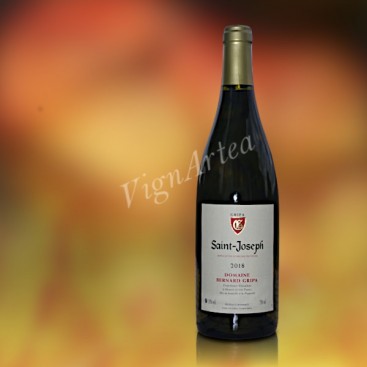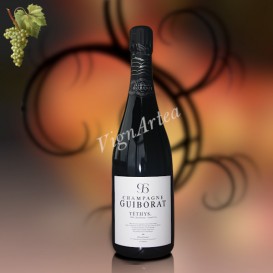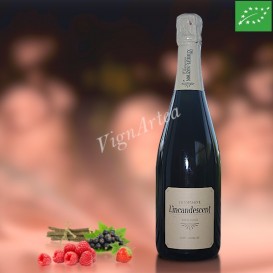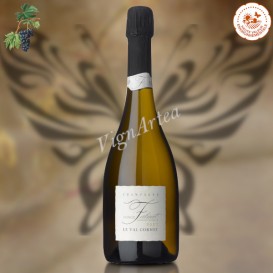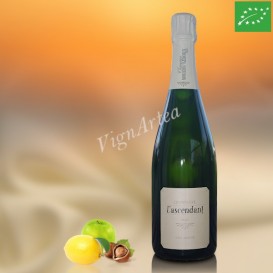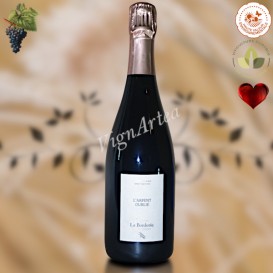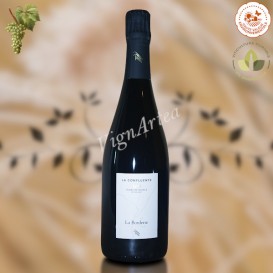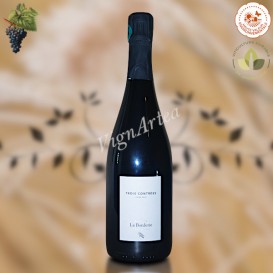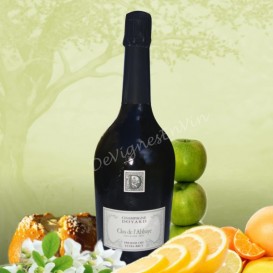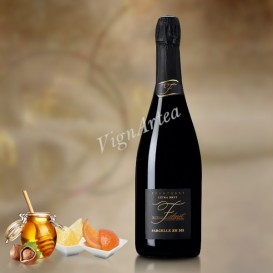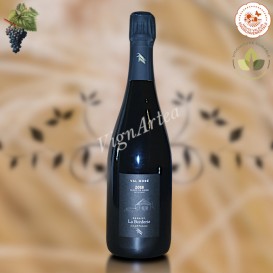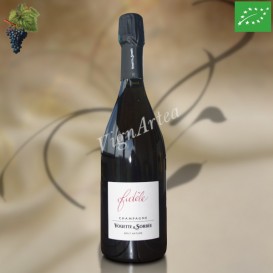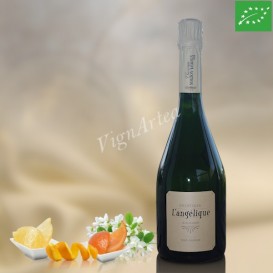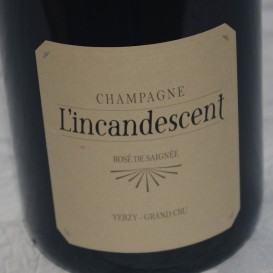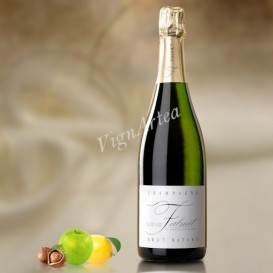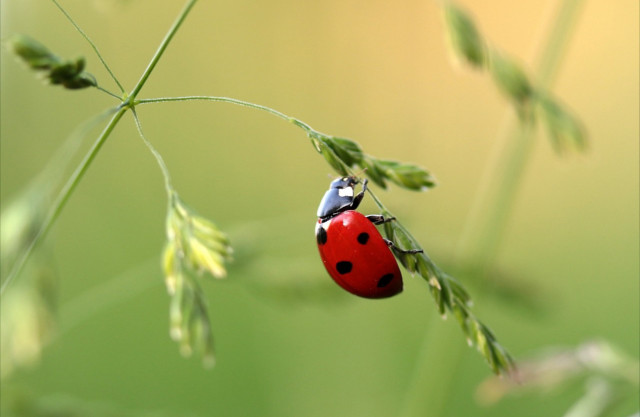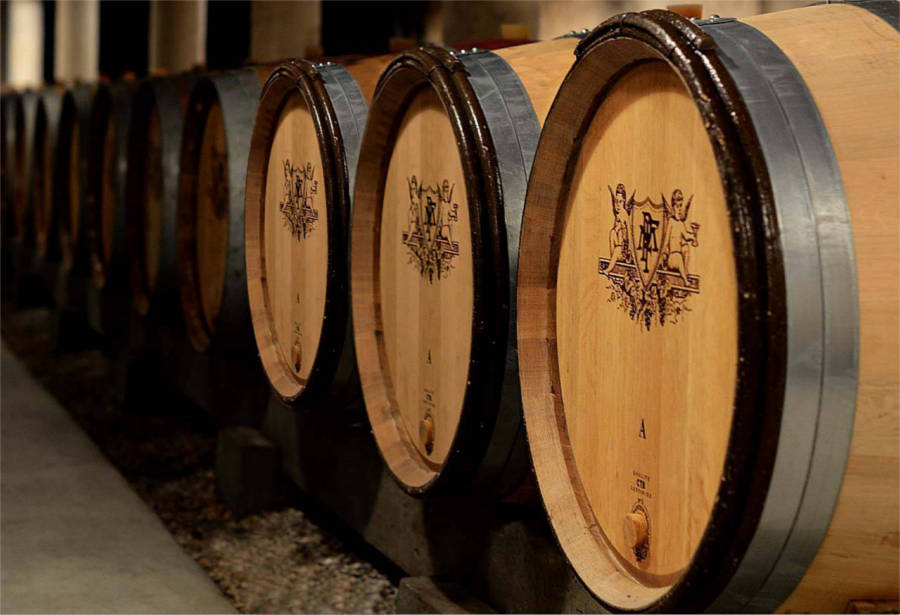WHITE SAINT-JOSEPH 2018 (Bernard Gripa)
RHÔNE VALLEY - AOP SAINT-JOSEPH - DRY WHITE WINE
Grape varieties: Marsanne (70%) - Roussanne (30%)
Native yeasts
Ageing for 8 months in oak barrels and stainless steek tanks
- Nose: intense and slightly creamy. Notes of almond, yellow peach, lychee, lemon and pink grapefruit with a hint of anise.
- Palate: soft and fragrant attack.
- OUR OPINION: a wine full of elegance and refinement!
DESCRIPTION
The white wine of Saint-Joseph is a blend of vine varieties (Marsanne & Roussanne) and a blend of different terroirs also. The vines, palnted on the hillsides of Tournon-sur-Rhône, are around forty years old and their yield is about 40 hl/ha.
TERROIR
Three distinct terroir make the white Saint-Joseph wine : Peygros, Rivoires, and Les Opateyres.
On the place called Peygros, the soil is the oldest of the three terroirs and was formed 600 million years ago; it consists of a granite with biotite (black mica), locally called Granite de Tournon.
This rock, very hard at the time of its constitution, has altered over time, cracking under the effect of tectonic movements which happened over millions of years. Stormwater seeped into it, eroding the rock and causing it to burst under the freeze/unfreeze actions.
It is through these numerous faults that the vine penetrates deeply into the rock to find a precious water reserve and all the nutrients it needs.
In the place called Rivoires, the soil is more recent, it was formed 2 million years ago, during the last Pleistocene glaciations. This terroir is locally named 'Terrasses du Pont de l'Isère' and consists of stony alluvium and sands.
As for the place called Les Opateyres, it offers a very recent limestone Loess soil which covers one of the river terraces formed during the last Pleistocene glaciations.
This type of terroir is particularly suited to whites grapes, this is why this plot is only planted with white grape varieties.
WINEGROWING & WINEMAKING
The grapes are harvested manually, then gently pressed. The juice obtained is left for a 24 hours rest in order to settle, then 80% of the must is drawn off in oak barrels and 20% in thermoregulated tanks for alcoholic fermentation. Once the latter is finished, the musts are aged on fine lees until the malolactic fermentation is completed and according to the following distribution :
- 50% of the must is matured in 600 liter oak barrels (half-muids)
- 30% of the must is aged in 228 liter oak barrels
- 20% of the must is aged in temperature-controlled stainless steel tanks.
Bottling takes place at the spring's end of the year following the harvest's one.
| Country | Rhône Valley |
| Color | White |
| Orange wines | No |
| Clay amphorae wines | No |
| Type | Dry |
| Vintage | 2018 |
| Capacity | 75 cl |
| Variety | Marsanne (70%), Roussanne (30%) |
| Main Grape Variety(ies) | Marsanne |
| Alcohol rate | 13 % |
| Quality Designation | Saint-Joseph |
| Cellar Potential | 8 years |
| Service advise | 13°C (55°F). Open 1/2 hr before the service. |
| Culture Methods | Sustainable cultivation method |
| Comments | Yield : 40 hl/ha ♦ Fermentation in stainless steel tanks (20%) and oak barrels (80%) ♦ Ageing in oak barrels and thermo-regulated stainless steel tanks for 8 months. |

